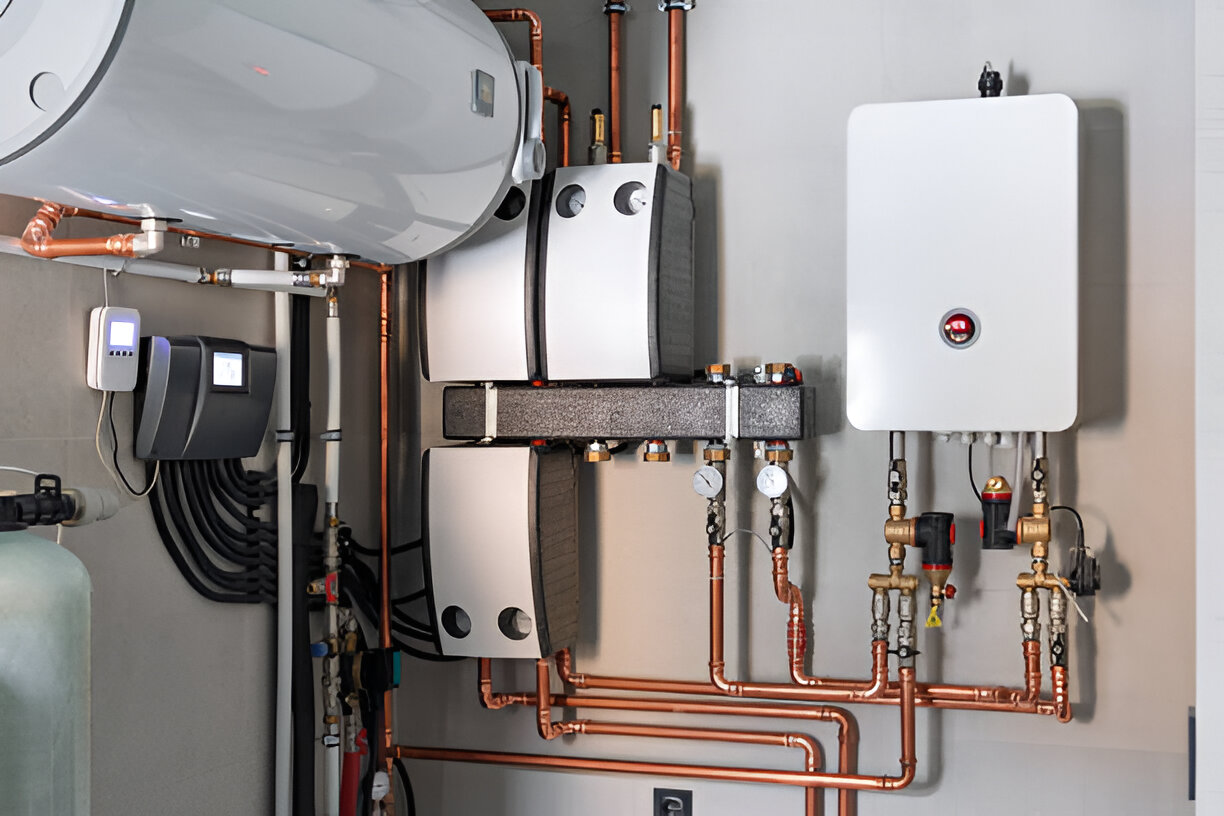
Heating Maintenance in Airville, PA
Preventive heating maintenance keeps your home reliably warm, reduces energy costs, and extends the life of your furnace, boiler, or heat pump. In Airville, PA, where winters are cold and damp and many homes use older hydronic or forced-air systems, a targeted seasonal maintenance program prevents breakdowns when you need heat most. This page outlines practical maintenance programs, seasonal checklists, recommended service intervals, specific inspection and testing tasks, the measurable benefits of routine care, plan features commonly offered, and how enrollment typically works.
Why preventive heating maintenance matters in Airville, PA
Airville’s winters bring extended heating demand and frequent temperature swings that stress system components. River valley humidity and older homes with aging ductwork or cast-iron boilers add risk of corrosion, condensate issues, and heat loss. Regular maintenance:
- Restores design efficiency so systems use less fuel or electricity
- Identifies worn parts before they fail on the coldest nights
- Keeps combustion systems operating safely and cleanly
- Helps preserve warranties and resale value
Common heating problems experienced in Airville homes
- Uneven temperatures or cold spots due to balancing problems or duct leaks
- Excessive cycling and higher energy use from dirty filters or failing controls
- Ignition failures, delayed ignition, or pilot problems in gas furnaces/boilers
- Water pressure or circulation issues in boiler systems (air in lines, failed circulators)
- Reduced heat output from clogged heat exchangers, burners, or coils
- Ice buildup and condensate drain blockages on heat pumps during thaw/refreeze cycles
Recommended service intervals
- Annual comprehensive inspection and tune-up of main heating system (furnace, boiler, or heat pump) before the heating season.
- Biannual visits for dual-fuel systems or homes that use separate systems for backup heat: one visit in fall (pre-season) and one in spring (post-season).
- Filter checks monthly; replace or clean filters every 1–3 months depending on filter type, pets, and indoor air quality.
- Heat pump refrigerant and defrost system check annually, more often if performance drops.
- Boiler water treatment and system flushing based on water quality and manufacturer recommendations (typically every 1–3 years).
Seasonal checklists (what a full preventive visit covers)
Fall (pre-winter)
- Safety inspection of combustion components (visual check of burners, flame quality, heat exchanger for cracks)
- Clean and adjust burners, ignition systems, and pilot assemblies
- Test and calibrate thermostat and control systems
- Inspect and clean blower assembly, belts, and pulleys (forced-air)
- Flush condensate traps and check drains (condensing systems and heat pumps)
Winter (mid-season spot check as needed)
- Verify airflow and heat output, check for unusual noises or cycling
- Inspect flue and venting for obstructions or draft problems
- Check combustion CO levels and verify proper combustion safety cutoffs
Spring (post-season)
- Clean heat exchanger surfaces and remove combustion byproducts
- Inspect ductwork, seals, and insulation for winter damage
- Test and lubricate circulator pumps and zone valves (boilers)
- Record system runtime and performance metrics for the year
Typical checklist tasks — what technicians test and clean
- Safety inspections: heat exchanger integrity, carbon monoxide checks, safety control operation, pressure relief valve operation (boilers)
- Cleaning: burners, combustion chambers, condensate traps, burners, blower wheels, coils, and accessible duct openings
- Component testing: ignition systems, flame sensors, limit switches, pressure switches, gas pressure, thermostat accuracy, and electrical connections
- Mechanical checks: motor amperages, belt tension, fan balance, circulator pump operation, expansion tank condition, and valve function
- System performance: combustion analysis (CO and efficiency readings), refrigerant level verification (heat pumps), and overall system airflow and temperature rise checks
Benefits of regular heating maintenance
- Improved system efficiency and lower energy bills from properly tuned combustion and matched airflow
- Extended equipment life by preventing wear caused by dirty components and unbalanced operation
- Fewer emergency repairs and reduced risk of midwinter failures
- Safer operation through verified safety controls and carbon monoxide monitoring
- Better indoor comfort: more consistent temperatures, fewer drafts, and quicker recovery from setbacks
- Documentation of maintenance that supports warranty compliance and increases resale value
Maintenance plan features commonly available (plan structure, not pricing)
Maintenance programs typically provide tiered coverage to match homeowner needs. Common features include:
- Annual or semiannual preventive visits with a comprehensive checklist
- Routine filter replacement of standard filters at each visit (specify filter sizes)
- Priority scheduling for enrolled customers during peak season
- Parts and labor discounts for repairs and system replacements
- Detailed service reports after each visit documenting findings, tests, and recommended next steps
- Seasonal reminders and a centralized service history for your home
Plans are designed to be flexible for Airville homes with furnaces, boilers, or heat pumps and can be tailored to cover single systems or whole-house setups with multiple heating sources.
How enrollment typically works (what to expect)
Enrollment usually involves selecting the level of coverage that matches the type of equipment and how often you want visits (annual or twice-yearly). After enrollment:
- A service representative documents your system details and schedules the first preventive visit
- Technicians perform an initial inspection, provide a written service report, and establish a recommended maintenance schedule
- Future visits are scheduled seasonally and recorded to build a service history that helps with diagnostics and warranty records
Enrollment processes vary, but the goal is straightforward: establish a predictable maintenance rhythm and keep clear records that make future repairs faster and less costly.
Practical homeowner tips between visits
- Replace or clean filters regularly and keep the area around your heating unit clear of debris
- Bleed radiators if you have a hydronic system and feel cold spots
- Keep vents and returns unobstructed and monitor for unusual noises or odors
- Test carbon monoxide detectors monthly and replace batteries per manufacturer guidance
- Insulate exposed pipes in unheated areas to reduce the risk of freezing


Enjoy flexible financing options that make upgrading or repairing your HVAC system easy and budget-friendly.










